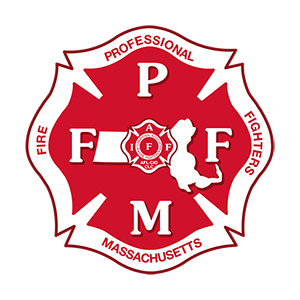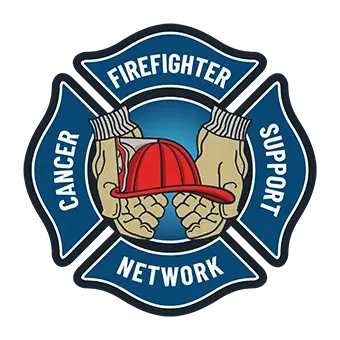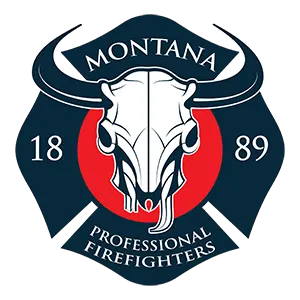Firefighter Services
At United Diagnostic Services, our mission is to prioritize the health and well-being of firefighters, who bravely face the hazards of their profession daily. We understand that their noble service comes with inherent risks, particularly concerning exposure to carcinogens present in smoke, heat, and various toxic substances. To address these risks effectively, we offer a comprehensive approach to early detection tailored specifically for firefighters.
Comprehensive Early Detection Programs for Firefighters

Comprehensive Diagnostic Health Screening
Our comprehensive ultrasound screenings provide a thorough evaluation of your health by examining nine essential organs.
Show More
This service includes onsite delivery, detailed reports from both a Radiologist and a Cardiologist, and a consultation with a Nurse Practitioner if any positive results are found. We also offer follow-up care coordination for any abnormal findings.
Areas Examined:
- Heart (Echocardiogram)
- Carotid Arteries
- Aortic Aneurysm
- Thyroid
- Liver
- Spleen
- Kidneys
- Bladder
- Gallbladder
- Pelvic ultrasounds for women
- Testicular ultrasounds for men.
Innovative Biometric Screening Blood Panel
Our Innovative Biometric Screening Blood Panel offers a comprehensive health assessment, screening for early signs of cancer, cardiovascular disease, and Alzheimer’s.
Show More
Chemistry Screening: Screens for Liver Cancer, Biliary Cancer, Diabetes, Gout, Kidney function, Anemia and Liver Disorders
Glucose, Sodium, Potassium, Chloride, Blood Urea Nitrogen, eGFR, BUN/Creatinine ratio, Uric Acid, Inorganic Phosphorus, Calcium, Iron, Total Protein, Albumin, Globulin, Albumin/Globulin Ratio, Total Bilirubin, Alkaline Phosphatase, Gamma-GT, AST (SGOT), ALT (SGPT), LDH
Complete Blood Count (CBC): Screens for Lymphoma & Leukemia, Anemia and other Blood Disorders
White Blood Cell Count (WBC), Red Blood Cell Count (RBC), Hemoglobin, Hematocrit, Platelets, RDW, Mean Corpuscular Volume (MCV), Mean Corpuscular Hemoglobin (MCH), Mean Corpuscular Hemoglobin Concentration (MCHC)
Lipids: Screening for Cardiovascular Risk
APOB, Lp(a), Lp-PLA2, Triglycerides, Total Cholesterol, HDL-High Density Lipoprotein Cholesterol, LDL-Low Density Lipoprotein Cholesterol, VLDL- Very Low-Density Lipoprotein Cholesterol, Cholesterol/ HDL-Cholesterol, Estimated Coronary Heart Disease Risk
Urinalysis: Screens for Bladder and Kidney Cancers
Color, Leukocyte esterase, Ketones, pH, Appearance, Nitrate, Occult Blood, Protein, Specific Gravity, Bilirubin, Glucose, Urobilinogen, Microscopic examination of urine sediment
Thyroid Stimulating Hormone: Screens for Thyroid Disease
Hemoglobin A1C: Screens for Diabetes
Prostate-Specific Antigen (PSA): Screens for Prostate Cancer
Performed on males 40 years of age and older
Cancer Antigen 125 (CA-125): Screens for Ovarian Cancer
Performed on all females
APOE4 Gene Testing: Screens for Alzheimer’s disease
American Heart Association/American College of Cardiology: Atherosclerotic Cardiovascular Disease Risk
Calculation of an individual’s risk of developing a cardiovascular problem such as a heart attack or stroke within the next 10 years. Calculated for those individuals over the age of 40.


Occupational Medical Program (NFPA 1582)
Our NFPA 1582 Physical/Wellness Program offers a thorough and detailed assessment of firefighters’ health and fitness to ensure they meet the physical demands of their profession.
Show More
Hands-on Physical Examination
- Vital Signs: Head, neck, eyes, ears, nose and throat
- Cardiovascular: Inspection, auscultation, percussion and palpation
- Pulmonary: Inspection, auscultation, percussion and palpation
- Gastrointestinal: Inspection, auscultation, percussion and palpation
- Genitourinary: Hernia exam (see cancer screening)
- Lymph Nodes: The examination of organ systems must be supplemented with an evaluation of lymph nodes in the cervical, axillary and inguinal regions.
- Neurological: The neurologic exam for uniformed personnel must include a general mental status evaluation and general assessment of the major cranial/peripheral nerves (motor, sensory, reflexes).
- Musculoskeletal: Includes an overall assessment of range of motion (ROM) of all joints. Additionally, observation of the personnel performing certain standard office exercises or functions is helpful in assessing joint mobility and function.
Blood Analysis
The following are components of the blood analysis:
- White Blood Cell Count, Differential, Red Blood Cell Count (Hematocrit) and Platelet Count
- Liver Function Tests, which includes SGOT/AST, SGPT/ALT, LDH, Alkaline Phosphatase and Bilirubin
- C-Reactive Protein and Triglycerides
- Cholesterol, which includes APOB, Lp(a), Total Cholesterol, Low Density Lipoprotein (LDL-C) level, High Density Lipoprotein (HDL-C) level, and Total Cholesterol/ HDL Ratio
- Glucose, if over 120 then HbA1c
- Blood Urea Nitrogen, Creatinine, Sodium, Potassium, Carbon Dioxide, Total Protein, Albumin and Calcium
- APOE4-Alzheimer’s disease screening.
Urinalysis
- Dipstick: Includes pH, Glucose, Ketones, Protein, Blood and Bilirubin
- Microscopic: Includes WBC, RBC, WBC Casts, RBC Casts and Crystals
Vision Tests
Assessment of vision must include evaluation of distance, near, peripheral and color vision. Evaluate for common visual disorders.
Pulmonary (Spirogram)
- Every year for smokers
- Every three years for nonsmoker
Chest X-Ray
Stress EKG* With VO2 Value Calculated
- Members 30-years-old and under will be tested on treadmills every third year.
- Those 30 to 39-years-old will be tested on treadmills every other year.
- Those 40 and older will be tested yearly.
* Abnormal Cardiac Follow-up — Electron Beam Tomography (EBT)
Oncology Screening Elements
- Prostate Specific Antigen (PSA), fecal occult blood testing and skin exam
- Additional screenings based on need or at the request of the patient may also be provided during the base-line exam.
- Cancer Antigen 125 (CA-125)-Screens for Ovarian Cancer
Cancer Screening
- Testicular exam
- Clinical breast examination
- Pap smear
Immunizations And Infectious Disease Screening
- Tuberculosis Screen (Annual PPD)
- Hepatitis C Virus Screen
- Hepatitis B Virus Vaccine
- Tetanus/Diphtheria Vaccine (Booster)
- Measles, Mumps, Rubella Vaccine (MMR)
- Measles Vaccine, Mumps Vaccine
- Rubella Vaccine, Polio Vaccine, Hepatitis A Vaccine
- Varicella Vaccine, Influenza Vaccine
- HIV Screening (required to be offered)
Heavy Metal And Special Exposure Screening (As Needed)
Arsenic (urine), Mercury (urine), Lead (urine), Lead (blood), Aluminum, Antimony, Bismuth, Cadmium, Chromium, Copper, Nickel, Zinc – Organophosphates (RBC cholinesterase), Polychlorinated Biphenyls (blood)
- A work history and medical history with special attention to skin, respiratory and gastrointestinal systems, and those nonspecific symptoms, such as headache, nausea, vomiting, dizziness, weakness or other central nervous system dysfunctions that may be associated with acute or chronic exposure to AN.
- A physical examination giving particular attention to the central nervous system, gastrointestinal system, respiratory system, skin and thyroid.
- A 14″ x 17″ posteroanterior chest x-ray.
- Further tests of the intestinal tract, including fecal occult blood screening and proctosigmoidoscopy, for all workers 40 years of age or older, and for any other affected employees for whom, in the opinion of the physician, such testing is appropriate.
LDCT Lung / CT heart Calcium Scoring
Low-dose chest CT is a quick, advanced imaging tool that detects early-stage lung and heart conditions, reducing death risk in high-risk patients.
Show More
Low Dose Chest CT Scan
For lung cancer screening takes multiple chest images while the patients lie flat on the X-ray table. The images are combined to reconstruct detailed internal organ images, highlighting the lungs. Due to the high image qualities, the scan can detect a small lung nodule or early stages of lung cancer.
Calcium Scoring
Cardiac computed tomography (CT) for Calcium Scoring uses special x-ray equipment to produce pictures of the coronary arteries to determine if they are blocked or narrowed by the buildup of plaque – an indicator for atherosclerosis of coronary artery disease (CAD). The information obtained can help evaluate whether you are at increased risk for heart attack.


Galleri™ Test: Advanced Multi-Cancer Early Detection
We are proud to offer the Galleri™ test, a groundbreaking multi-cancer early detection (MCED) screening tool.
Show More
This innovative blood-based test detects DNA markers associated with cancer and identifies the tissue of origin, demonstrating impressive results in detecting early-stage cancers, including those challenging to diagnose through conventional screening methods.
How Galleri Works
- Cell-Free DNA Methylation Analysis: The Galleri test employs next-generation sequencing to detect specific methylation patterns in cell-free DNA (cfDNA), indicating the presence of cancer. This advanced technique analyzes the natural process of methylation, which regulates gene expression and often exhibits abnormal patterns in cancer cells.
- High Specificity and Sensitivity: Galleri offers exceptional sensitivity for numerous cancer types while maintaining a low false-positive rate. Its ability to predict the tissue of origin aids in guiding follow-up testing and diagnosis, enhancing the overall efficiency of cancer detection.
Benefits of Choosing Galleri
- Comprehensive Screening: Unlike traditional cancer screenings that target single cancer types, Galleri screens for over 50 different cancers in one test. This comprehensive approach provides a more thorough evaluation of an individual’s cancer risk.
- Potential for Improved Outcomes: Early cancer detection is crucial for successful treatment and improved survival rates. Galleri’s ability to detect cancer at early stages plays a pivotal role in potentially saving lives by enabling timely interventions.
- Seamless Integration: Our partnership allows for the seamless integration of the Galleri test with our existing diagnostic services, offering a comprehensive early detection solution that combines advanced blood-based screening with traditional imaging techniques.
By incorporating the Galleri test into our service offerings, we aim to provide our patients with cutting-edge cancer screening technology, potentially improving outcomes through early detection and targeted follow-up care.
Mammography Screening
Mammography screening is an essential tool for the early detection of breast cancer. With mobile breast imaging services, patients gain convenient and accessible care right in their communities.
Show More
Using advanced imaging technology, mammograms can detect tumors that are too small to be felt or seen through other methods. This early detection plays a critical role in improving treatment outcomes, as identifying potential issues sooner increases the likelihood of successful intervention and survival.
Mobile mammography services make it easier for women to prioritize their health by offering screenings close to home or work. This convenience encourages more women to get screened, leading to earlier diagnoses and better chances for effective treatment. Regular mammograms are key in catching breast cancer early, even before symptoms develop, providing a significant advantage in the fight against this disease. Women of recommended screening age should prioritize regular mammograms to ensure the best possible protection against breast cancer.

Ready to learn more? Book your free overview today!
Understanding Types of Cancers and Risks
The firefighting environment exposes first responders to a complex array of carcinogens, including benzene, asbestos, polycyclic aromatic hydrocarbons (PAHs), formaldehyde, and diesel exhaust. These harmful substances can enter the body through inhalation, ingestion, and skin absorption, posing a significant risk for the development of various types of cancers. Moreover, the stress and demands of the job further compound these risks, emphasizing the critical need for proactive health management strategies.
Studies have highlighted elevated cancer risks among firefighters, with certain cancers showing particularly heightened incidence rates. These include lung, bladder, brain, colon, leukemia, lymphoma, melanoma, prostate, and testicular cancers. Furthermore, the duration of service directly correlates with increased risk, with firefighters experiencing significant elevations in cancer incidence after 20 and 30 years of service.
At United Diagnostic Services, we recognize that early detection is paramount in effectively managing cancer risk among firefighters. To this end, we have developed specialized screening protocols designed to detect potential malignancies at their earliest stages, enabling timely intervention and treatment.
Firefighter Cancer Screening Recommendations
- Lung Cancer: Annual screening for individuals aged 55 to 80 with a history of smoking equivalent to 30 pack-years. Screening to continue for current smokers or those who quit within the past 15 years.
- Skin Cancer: Regular comprehensive skin inspections, focusing on sun-exposed areas, with prompt referral for suspicious lesions.
- Breast Cancer: Annual clinical breast examination and mammography recommended for female personnel starting at age 40.Encouragement of self-examination supported by educational resources.
- Cervical Cancer: Pap smear every three years for women aged 21 to 65, with HPV testing for those aged 30 to 65 who prefer less frequent screening.
- Testicular Cancer: Baseline examination followed by routine self-examination, complemented by educational materials.
- Prostate Cancer: Annual discussion regarding PSA testing for male personnel, with earlier initiation for those at increased risk.
- Colorectal Cancer: Discussion about commencing screening at age 40, with methods including FOBT, sigmoidoscopy, or colonoscopy. Colonoscopy may be indicated earlier or more frequently based on clinical factors.
- Bladder Cancer: Regular evaluation of urine for blood during wellness examinations, with prompt follow-up for positive results.
- Oral Cancer: Routine dental checkups incorporating comprehensive oral examinations as part of cancer-related screenings.
- Thyroid Cancer: Inclusion of physical examination for palpable nodules as part of routine health assessments.
UDS Promise: Supporting Firefighters’ Health
At UDS, we recognize the immense sacrifices firefighters make daily to protect our communities. That’s why we are dedicated to advocating for their well-being through comprehensive healthcare solutions tailored to their unique needs.
We strongly advocate for firefighters to prioritize their health by undergoing annual medical examinations conducted by primary care physicians who understand the challenges inherent in their profession. This proactive approach allows for early detection of potential health concerns, including cancers, ensuring prompt intervention and optimal treatment outcomes.
Our commitment extends beyond advocacy to empowerment. Through specialized cancer screening programs and access to cutting-edge diagnostic technologies, we provide firefighters with the tools and resources needed to proactively manage their health.
In essence, our promise at UDS is to champion the health and longevity of firefighters by providing comprehensive healthcare solutions tailored to their unique needs. Through advocacy, empowerment, and collaboration, we strive to ensure that firefighters have access to the resources and support necessary to safeguard their health against occupational risks. Together, let us continue to prioritize proactive health management and honor the dedication of our firefighters.
Who We Work With















